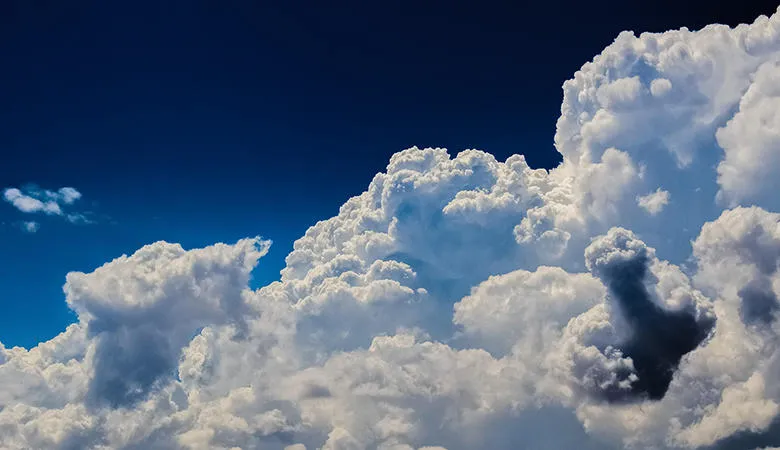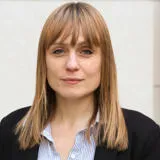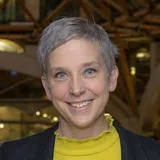26 February 2019
Authoring the 6th IPCC Assessment Report
Professor Mark Pelling is an author on the 6th IPCC Assessment Report. He explains how it's produced and how he's involved.

The Intergovernmental Panel on Climate Change (IPCC) are now in the process of producing their 6th Global Assessment Report, due for release in Autumn 2022 – in time for the first global stocktake under the Paris Agreement.
So how does it work and why does it take three years to write? Professor Mark Pelling from the Department of Geography explains the process and how he’s involved:
What is the IPCC Global Assessment Report?
Every seven years, the IPCC produces a Global Assessment Report. The 6th Assessment Report (AR6) will be an update on the scientific findings recorded in the AR5 back in 2014, but will also incorporate other recent outstanding reports, such as the Special Report on 1.5 degrees.
I mention the Special Report because it highlighted the seriousness of climate change and the little time (10-15 years) we have to reverse it to avoid catastrophic, global consequences. These include the possibility of mass extinction, even of the human race. The report sparked a huge concern from policymakers and the general public.
What are the working groups involved in writing the report?
There are three working groups writing the chapters of the report. Each working group is made up of around 200 scientists from across the world – roughly 10 authors per chapter. They basically function as follows:
- Working Group I (The Physical Science Basis) synthesises observations and models of climate change, as well as future predictions.
- Working Group II (Impacts, Adaptation and Vulnerability) synthesises evidence of the impacts of climate change on natural and social systems and ways these are observed to adapt, as well as future adaptive capacity and constraints.
- Working Group III (Mitigation of Climate Change) synthesises science on how climate change can be mitigated, for example by zero carbon living.
What is your involvement?
I’m an author in Working Group II and help to lead the chapter on urban systems. Chapter 6, entitled ‘Cities, settlements and key infrastructure’, will look at the impacts of climate change and adaption options, and will examine evidence of the co-benefits between adaptation and other sustainability goals, such as climate change mitigation and pro-poor development.
We’re particularly interested in the large volume of literature on the ways cities and urban residents are already feeling the impacts associated with climate change. This includes heatwaves and urban flooding or drought, and what is being done at the local level to avoid the worst of climate change.
We cannot be policy prescriptive – that is to say, the authors cannot make an argument – we can only summarise the most important findings from academic literature. This stance is key for the political legitimacy of the report. However, we hope that, by evidencing key features of adaptation and the underlying policies that enable adaptation/enhance sustainable development, policymakers will take note.
Adequately engaging policymakers has historically been a major challenge – the IPCC has for many years evidenced the scientific community's strong concerns about climate change, but this evidence has fallen on deaf ears or not been taken as seriously as needed. The evidence has clearly shown policymakers must avoid dangerous and irreversible climate change impacts, which have serious consequences for the current levels of human development.
Who else from King's is involved in the report?
King’s College London has a total of three academics working on the report – all from the Department of Geography.
Dr Helen Adams is also an author in Working Group II. She is working on 'Chapter 7: Health, wellbeing and the changing structure of communities.'
Meanwhile, Dr Tamsin Edwards is an author in Working Group I, authoring 'Chapter 9 on Ocean, cryosphere and sea level change.'
Where are you at right now with producing the AR6?
The first Working Group II meeting was held in Durban in February. We are now working in our chapter groups to develop an internal draft. This draft will highlight key themes and establish the direction of existing literature. This draft will then be reviewed by other authors.
The second meeting will be held in Kathmandu in July, when we will discuss the feedback from the internal draft and begin to write up the first version of the chapter for external review. Anyone in the world will be able to comment on it – each chapter usually receives hundreds, if not thousands, of comments, and each comment must be noted and responded to.
There are then two more writing and review cycles before the report is presented to the governments of the world and scrutinised. The final report should be accepted in October 2021.



